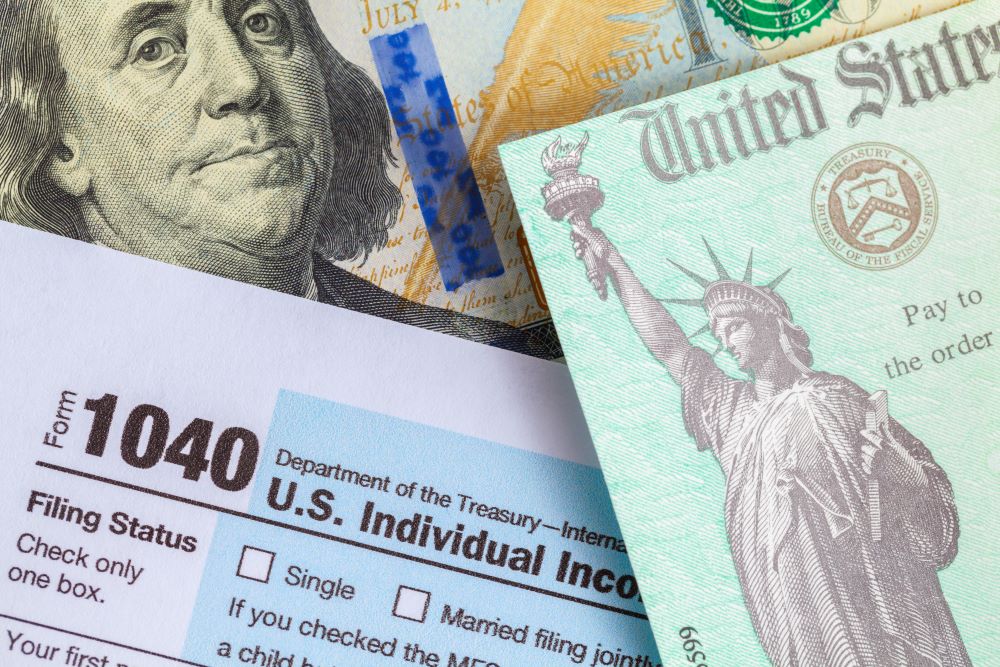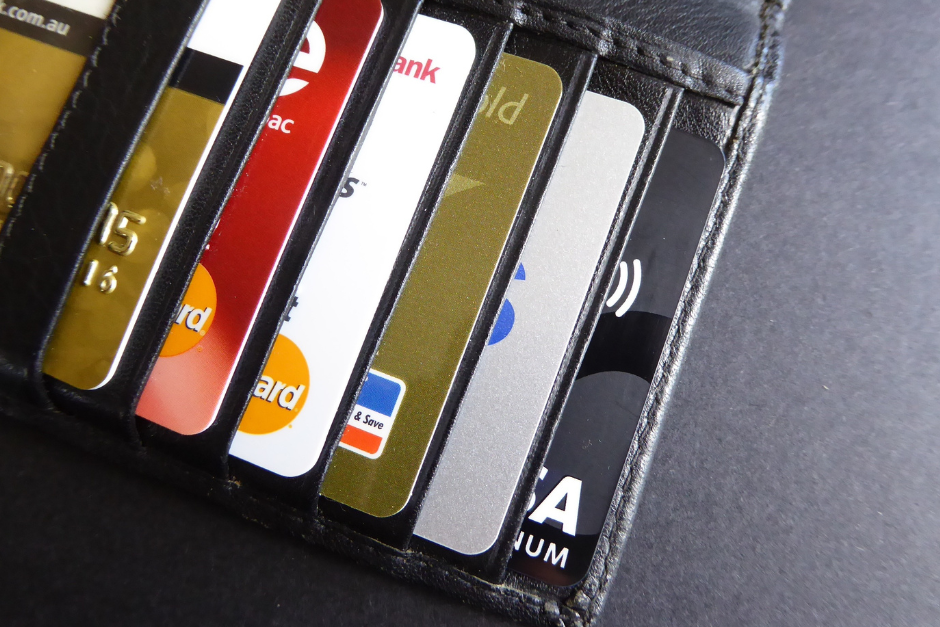
During times of high inflation, rising costs can put consumers under greater financial stress. High inflation can make it harder for you to pay for the things you need, more expensive for you to borrow money, and slow down economic growth on a large scale.
If you’re worried that inflation could negatively impact your credit, the good news is that your credit score is not directly affected by inflation or the state of the economy. But there are some ways that inflation can indirectly impact your finances and credit score. Here’s how inflation can affect your credit.
What Is Inflation?
Inflation occurs when the prices of goods and services increase over time. High inflation rates that outpace wage growth can diminish the purchasing power of consumers. In other words, your dollar won’t go as far as it used to, and it becomes more expensive to maintain your standard of living. There are several economic factors that can contribute to inflation:
- Increased Demand: When consumer demand for goods and services increases, prices may rise because buyers are willing to pay more. Wages are one of the biggest contributors to increased demand; as wages increase, consumers buy more and demand goes up.
- Diminished Supply: When supply decreases, prices may increase as a result. For example, if a nation’s wheat crops are destroyed by a natural disaster, prices could rise in many areas since wheat is used in a variety of products.
- Increased Production Costs: If the cost of producing goods and services goes up, businesses may pass those costs on to the consumer in the form of higher prices.
- Changes in the Money Supply: When the government prints more money, it can devalue the currency and lead to inflation.
The federal government monitors inflation using the consumer price index (CPI), which tracks prices of goods and services using separate indicators for food and energy.
How Does Inflation Affect Credit?
Inflation does not have a direct impact on the information in your credit report or your credit score, but it can indirectly affect your credit and finances. Your credit score is calculated using several factors, two of which can be affected by inflation:
- Payment History: The most important contributing factor to your credit score is payment history, your track record of making payments. On-time payments can help increase your credit score over time, while late payments can negatively impact your credit score.
- Credit Utilization: Another important factor for your credit score is your credit utilization ratio. This is the amount of available revolving credit that you are currently borrowing against (one example is the amount of your credit card’s limit that you are currently carrying a balance on). A credit utilization ratio that is too high can negatively impact your credit score.
Inflation plays into these credit-scoring factors in the following ways:
- Higher Interest Rates: When inflation rises, the Federal Reserve often responds by raising interest rates in an attempt to slow it down. This makes it more expensive to borrow money across a variety of credit types including credit cards, personal loans, and mortgages. This may cause you to have more difficulty affording your credit payments, leading to missed/late payments or higher credit utilization.
- Increased Debt Burden: When your income doesn’t keep up with inflation, you may find it difficult to afford your expenses and resort to taking on more debt. This could increase your credit utilization and/or make it more difficult for you to make your monthly payments on time.
How to Protect Your Credit During Times of Inflation
There isn’t much you can do to affect inflation on a grand scale, but there are some ways to help protect your credit during times of inflation.
Create a Budget and Track Your Spending
Creating a budget and tracking your spending can help ensure you’re putting your money toward what’s important. You can use a budgeting app or a simple spreadsheet in Excel to track your monthly income and expenses. Make sure you’re prioritizing crucial payments, like your monthly bills, over recreation and other types of optional expenses.
Pay Down Your Debt
Paying down your debt can help you reduce your monthly bills, free up money in your budget, and increase your borrowing power if you need to take out another line of credit. This can also help you more easily pay your bills on time, keep your credit utilization low, and avoid unmanageable levels of debt.
You can use the avalanche debt repayment method to focus on putting extra money toward the debts with the highest interest rates first, saving your money on interest in the long run. Alternatively, you can use the debt snowball method and focus on paying down the smaller debts first to feel encouraged as you eliminate debts.
Negotiate Lower Interest Rates
Accessing lower interest rates can be difficult during times of high inflation when interest rates usually rise. For example, it won’t make sense for you to refinance your mortgage when interest rates are high because you might end up with a higher interest rate than you’re currently paying. But you could possibly negotiate lower interest rates with your credit card issuer to help lower your monthly payments.
Try to negotiate a lower interest rate by calling your credit card issuer and requesting a reduction. Focus on card issuers where you’ve held accounts for a long time and have a history of timely payments. If you have a long history of paying your bill on time and a strong credit score, use these factors to make your case.
Save Up an Emergency Fund
When you have an emergency savings fund, you can use it to pay for unexpected expenses such as medical bills or vehicle repairs without having to go into debt. It’s often recommended that you have three to six months’ worth of expenses in your savings account, but having something is better than having nothing.
Increase Your Income
Look for ways to increase your income to counteract rising prices. You can ask for a raise, apply for a promotion or a better paying job, or take on a side hustle. Making more money can help you keep up with inflation, pay your bills on time, avoid going into too much debt, and afford the rising costs of goods and services.
Monitor Your Credit
When actively working to protect your credit from inflation, it can help to know the contents of your credit report. You should check your credit reports frequently in order to help defend yourself against inaccurate information and identity theft.
When checking your credit reports, ensure the information that they contain is accurate. Inaccuracies could be a sign of identity theft. Dispute all inaccurate information with the credit bureaus to have it removed. This can help ensure your credit score represents you as best as it possibly can. Consider signing up for MyScoreIQ credit monitoring services to help automate the process of monitoring your credit report and receive real-time alerts for significant changes.
FAQs
How will higher interest rates affect my credit card debt?
If you borrow money at higher interest rates during times of inflation, you can expect your monthly payments to be higher, which could make it difficult to pay off your debts. Inflation can also reduce your buying power, causing you to rely on credit cards to afford your expenses. This greater reliance on credit, combined with higher interest rates, can lock you into a cycle of debt that can be difficult to escape.
Should I avoid using credit cards during inflation?
As long as you can continue to use your credit cards strategically -- by making your payments on time, maintaining a low credit utilization ratio, and avoiding excess debt -- you can continue to use your credit cards during times of inflation. Avoid using credit cards if you are having difficulty making your payments on time or only paying the minimum payments.
What are the best ways to pay down debt during inflation?
Devote extra funds from your monthly budget toward your debt payments in order to focus on reducing your debt. You can focus on the snowball method and pay off smaller debts before moving on to bigger ones, or the avalanche method, in which you pay off the debts with the highest interest rates first. If you are having trouble keeping up with multiple debts, you may want to look into debt consolidation, which combines multiple debts into a single loan with one monthly payment.
Is inflation good or bad for my finances?
Inflation causes the costs of goods and services to rise, making it more difficult for you to afford your lifestyle, especially when your income doesn’t rise to keep up with inflation. This can negatively impact your ability to pay for the things you want and need. And if you end up relying on debt to make those purchases, you could negatively impact your credit and find yourself in over your head.
Key Takeaways
- Inflation Basics:
- Inflation is the general increase in the price of goods and services over time, which can reduce your purchasing power when your income doesn’t rise to keep up with it.
- Inflation can be caused by factors such as increased demand, production costs, and changes in the money supply.
- Inflation and Credit:
- Inflation can lead to higher interest rates, making it more expensive to borrow money.
- Inflation can also contribute to an increase of your debt burden and a reduction of your purchasing power, potentially impacting your credit score.
- How to Protect Your Credit During Inflation:
- Create a budget and track your spending to manage your finances effectively.
- Pay your bills on time and in full every month.
- Focus on paying off debt with high interest rates to reduce your monthly payments and improve your credit score.
- Negotiate lower interest rates whenever possible using your positive customer history.
- Save up an emergency fund to afford unexpected expenses and avoid going into additional debt.
- Increase your income through a promotion, job change, or side hustle to offset the impact of inflation.
- Regularly monitor your credit reports and dispute inaccuracies to help ensure your credit score is fair.
Bottom Line
While high inflation itself doesn’t directly affect your credit reports or credit score, it can have an impact on interest rates and your purchasing power. Higher interest rates lead to greater borrowing costs, potentially hindering your ability to manage your debts and maintain a good credit score. To help protect your credit during times of inflation, you should take proactive steps such as creating a budget, paying off debts, negotiating lower interest rates, saving an emergency fund, and increasing your income whenever possible.
It's also essential to regularly monitor your credit report and credit scores to help identify inaccuracies and signs of identity theft. Consider utilizing MyScoreIQ credit monitoring services to automate the credit monitoring process, ensuring you stay informed and can take action to help protect your credit and financial well-being.






